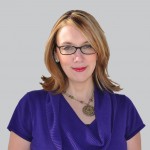 Recently, I had the opportunity to accompany the sustainability team from Asia Pulp and Paper (APP) on a tour of their offices, research and development center, and pulp and paper plants in Jakarta, Indonesia and Jambi, Sumatra. One of the most impassioned parts of the trip was getting the chance to see philanthropy and community care in action through APP’s support of the Floating Doctors program in a remote village upstream of the plant.
Recently, I had the opportunity to accompany the sustainability team from Asia Pulp and Paper (APP) on a tour of their offices, research and development center, and pulp and paper plants in Jakarta, Indonesia and Jambi, Sumatra. One of the most impassioned parts of the trip was getting the chance to see philanthropy and community care in action through APP’s support of the Floating Doctors program in a remote village upstream of the plant.
APP sponsors a mobile medical clinic for workers, their families, and their communities in the remote villages along the river way in Jambi Province, Sumatra. With the challenges of isolation, socio-economic barriers, and limited resources, healthcare is often non-existent for the people of this region. Issues like Malaria, Dengue Fever, and AIDS are common, along with a lack of knowledge for easily preventable diseases. By partnering with the Floating Doctors program, APP is able to positively contribute to the communities in which their workers live and to help those desperately in need of basic healthcare.
With the Floating Doctors mission to “reduce the present and future burden of disease in the developing world, and to promote improvements in health care delivery worldwide,” both APP and Floating Doctors are able to serve communities most in need. This program provides preventive healthcare like vaccines for children, treatment of easily curable diseases, and educational awareness of basic health issues to remote villages, where access to nurses and doctors is non-existent.
Gliding down the muddy river waters away from the factory, the speedboat bounced on the waves for about 40 minutes until reaching the village of Lumahan. A guard awaited at the water’s edge. Surrounded by rice paddies and a gazebo, young boys and men waited for family members to receive medical care, while posing on their motorbikes.
The doctor’s pavilion had a large crowd of about 50 people of all ages, men, women and children. Tents were set up and people were resting in the shade as they waited to be seen. There was a small home toward one end, where children were being given common vaccines as preventive measures. Children were smiling and having fun. School children dressed in uniforms sat patiently on a tarp. Mothers held their children close and the mid-day sun beat down mercilessly.
Most people were being seen for common ailments such as diarrhea, parasites, and ringworm. Often doctors see problems manifested in skin problems in tropical regions. Many of the common ailments were contracted by villagers not wearing shoes. Scabies frequently resulted from being wet. Children are the most vulnerable.
Hygienic awareness is low in this part of the world. It’s a critical part of the education program the team of doctors must teach.
Dr. Putri Aydayani is the doctor who leads this program for APP. Travel to the village is a constant worry for her team. The medical staff must watch the water level in the river and take the boat in and out when the water is high. Being on the boat before low tide is critical. Otherwise, the doctors will not be able to leave for the night or get supplies for the next day. The only access to the village is by boat.
With minimal options for transportation, this program has become critical to the villagers. In times past, they had to find a way to the regular clinic in Sungai, a Rambam village in the Tebing-Tinggi district. The journey took 90 minutes by boat and although there is road access, the conditions are too dangerous to travel. Transportation is the biggest threat to healthcare.
APP’s help has enabled Dr. Aydayani to run the clinic with the basic resources needed. She has a small staff consisting of herself, a nurse, an assistant, and a laboratory technician. Treating 30 to 40 children every day keeps the staff busy but Dr. Aydayani has seen health problems decrease and people have learned to protect themselves and their families. Most villagers come to see her once a month, not only for care but to become better educated about health issues. She hopes the program will continue for many years to come.
Providing healthcare to remote villages is one way to do the right thing for workers around the world and to engage in the critical elements of capacity building. Strategic projects that increase infrastructure, promote accountability, and fill in the gap where local and government resources cannot fill is important to worker welfare. Building stronger, healthier communities benefits everyone.
APP cares about its workers and their communities. With improved working conditions and living standards companies benefit in terms of worker loyalty and longer term benefit sharing. Strengthening communities builds trust between corporations and the people who enable their success.
Bio:
Kelly Eisenhardt is Co-Founder and Managing Director at BlueCircle Advisors, an environmental compliance and sustainability consulting and training firm based in Massachusetts (www.bluecircleadvisors.com.) In her role at BlueCircle Advisors, she is responsible for providing business intelligence, strategy and implementation of environmental, social and governance (ESG) risk programs. Her experience aligns well with her client’s needs for technology, compliance, and sustainability expertise by helping companies create and manage their corporate environmental and social responsibility programs.
To contact Kelly Eisenhardt, send emails to kelly.eisenhardt@bluecircleadvisors.com or follow her on Twitter @KelEisenhardt. For more information about BlueCircle Advisors and the company’s products and services, please visit www.bluecircleadvisors.com, on Facebook at BlueCircle Advisors, on Twitter @OurBlueCircle, and on the LinkedIn group at the BlueCircle Advisors group.